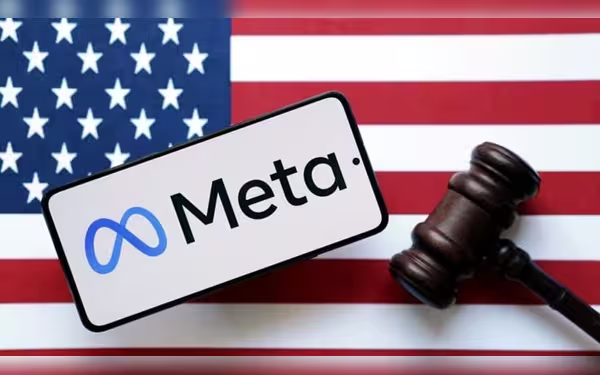Saturday, November 16, 2024 08:38 PM
Meta Faces Lawsuits Over Teen Social Media Addiction
- Meta accused of causing teen mental health issues.
- California judge allows lawsuits to proceed.
- States seek accountability for social media practices.
 Image Credits: channelnewsasia
Image Credits: channelnewsasiaMeta faces lawsuits from U.S. states over claims of contributing to teen social media addiction and mental health issues.
In a significant legal development, the parent company of Facebook, Meta, is set to face lawsuits from multiple U.S. states. These lawsuits accuse Meta of contributing to mental health issues among teenagers by making its social media platforms, Facebook and Instagram, addictive. A federal judge in California, Yvonne Gonzalez Rogers, ruled on Tuesday that the lawsuits could proceed, rejecting Meta's attempt to dismiss the claims.
The lawsuits, which were filed last year, involve more than 30 states, including major ones like California and New York, as well as a separate case brought by Florida. While the judge acknowledged that a federal law known as Section 230 provides some protection to online platforms, she determined that the states had presented sufficient details regarding allegedly misleading statements made by Meta. This ruling allows the states to continue their legal battle and seek more evidence, potentially leading to a trial.
California Attorney General Rob Bonta expressed the importance of holding Meta accountable, stating, "Meta needs to be held accountable for the very real harm it has inflicted on children here in California and across the country." This sentiment reflects a growing concern among parents and lawmakers about the impact of social media on young people's mental health.
In addition to the state lawsuits, individual plaintiffs have also filed personal injury lawsuits against Meta and other social media companies, including TikTok, YouTube, and Snapchat. These lawsuits claim that the companies have designed addictive algorithms that contribute to anxiety, depression, and body-image issues among adolescents. The ruling by Judge Rogers also dismissed motions from these companies to dismiss the personal injury lawsuits, allowing those cases to move forward as well.
Meta has responded to the ruling by stating that it disagrees with the court's decision. A spokesperson for the company emphasized that Meta has developed various tools to support parents and teens, including new "Teen Accounts" on Instagram that come with added protections. Similarly, a spokesperson for Google, which owns YouTube, labeled the allegations as "simply not true," asserting that providing a safer experience for young users has always been a priority.
The states involved in the lawsuits are seeking court orders to address what they describe as Meta's illegal business practices, along with unspecified monetary damages. This legal action is part of a broader trend, as hundreds of lawsuits have been filed against social media companies, highlighting the growing scrutiny they face regarding their impact on youth.
As the legal proceedings unfold, it raises important questions about the responsibility of social media companies in safeguarding the mental health of their young users. The outcome of these lawsuits could set a precedent for how social media platforms operate and how they are held accountable for their influence on society. It is crucial for parents, educators, and policymakers to stay informed about these developments, as they may shape the future of social media and its role in the lives of young people.












